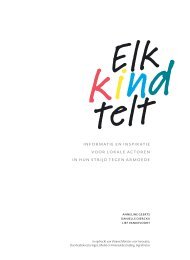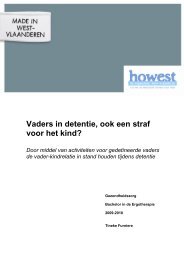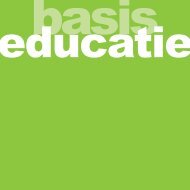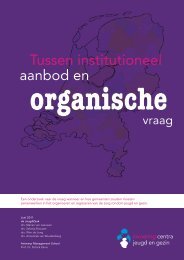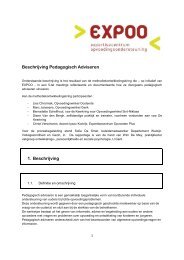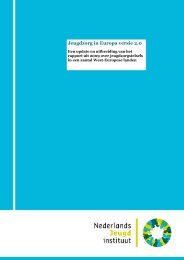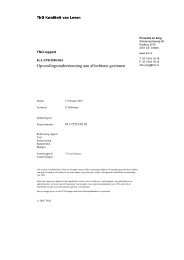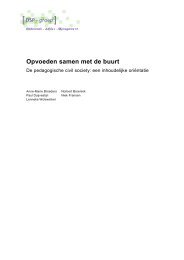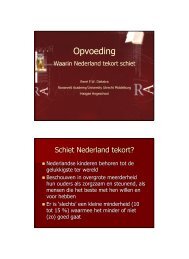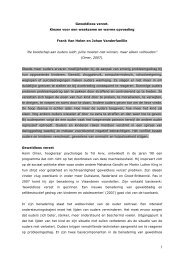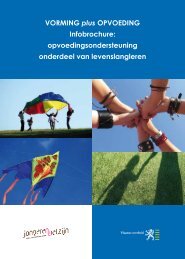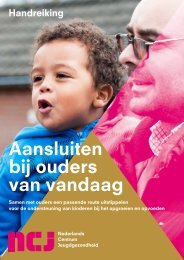Technique Is Not Enough (TINE) - British Psychological Society
Technique Is Not Enough (TINE) - British Psychological Society
Technique Is Not Enough (TINE) - British Psychological Society
- No tags were found...
You also want an ePaper? Increase the reach of your titles
YUMPU automatically turns print PDFs into web optimized ePapers that Google loves.
multiple approaches that also include the learning methods used and the ways programmecontent is adapted to suit the mores of peoples from different cultures. We will look atthese additional approaches more specifically in future chapters but here we concentrateon recruitment and retention.SNAPSNAP works in high immigrant neighbourhoods, and, often with very limited resources. It uses anoutreach model to facilitate capacity development within agencies, staff groups and schools in thesecommunities. We attempt also to match staff’s ethnic backgrounds to clients where appropriate andavailable.Overall, our mandate is to be client‐responsive and to provide services that reflect how caregivers andservice providers describe their needs. Of course, good services and alliances will facilitate adeveloping perspective of how needs are defined. For example, trauma counselling or specialclassroom placement may combine with SNAP services at an appropriate point (e.g. traumadisclosure, school threatened expulsion).SNAP backs this up by including schools boards, policing service, fire service, child welfare,specialised community resources and children’s mental health services. These organisationspartnered together to provide and deliver the noted SNAP service in their community schools andchildren’s mental health centre(s) to ensure a seamless delivery of service between schools and mentalhealth services. This initiative also includes a SNAP Advisory Committee that comprised of allpartners listed.Incredible YearsIn the IY programme there is a three-fold emphasis: i) content based on social learning theory thatsupports parents in identifying SLT principles rather than teaching techniques; ii) a collaborativeprocess of delivery that helps parents to identify their own goals and work in partnership with groupleaders; and iii) attention to access or what is needed to enable parents to participate, some of whichis practical, transport, location, crèche but also involves attention to the recruitment process andrelationship building with parents prior to the course. Another development is the training of staff toundertake home coaching visits as a strategy for delivering the programme on a one-to-one basis inthe home. We have always done this in order to let the parents learn a little about the programmebefore attending it, however this is now more formalised. The IY programme (also) includes weeklyphone calls to parents and making contact with parents that miss sessions and ideally, visiting themwith the session content.Another example using a variety of approaches to maximise on-going engagement comesfrom Dare To Be You, which is always available in the indigenous languages of the people itworks with. The approach appears to embrace the integration of a wide range of strategiesas follows:34 Professional Practice Board



